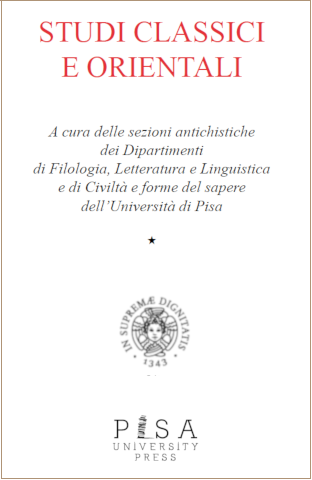la teoria del flusso nel cratilo e nel timeo di platone: il problema di un mondo in divenire e il rapporto con eraclito
Abstract
The ‘Flux Theory’ in Plato’s Cratilus and Timaeus: the problem of a becomingworld and the connection with Heraclitus.The Cratylus is scattered with mentions of the so-called ‛Flux Theory’,whose extreme form (as found there) claims that every being is affectedby perpetual change in all of its aspects. In this paper I suggest that thesource for the extreme version of the Flux Theory is not the historicalHeraclitus, but a particular doctrine developed by Hippocratic writers lationshipbetween some loci of the last two Stephanus pages of theCratylus and the De Victu, belonging to the Corpus Hippocraticum. Aneffort will be made to investigate Plato’s attitude towards the Flux Theoryand I will demonstrate that the followers of the theory are portrayedin comical terms. Still, the Cratylus ends with an aporia and the questionwhether sensibles are affected by a form of flux is left open. Pl. Ti.49a6–50b5 answers that question: flux is limited to a small group of beingscharacterized by a certain degree of physical instability (such asfire, air, water) and is traced back to a particular change in the disposalof the elementary triangles which make up the internal structure of matter;however, the human mind can isolate recurrent characteristics in thephysical structure of beings and obtain a stable object of knowledge.
edoardo.benati@sns.it
Fascicolo
Sezione
Articoli


